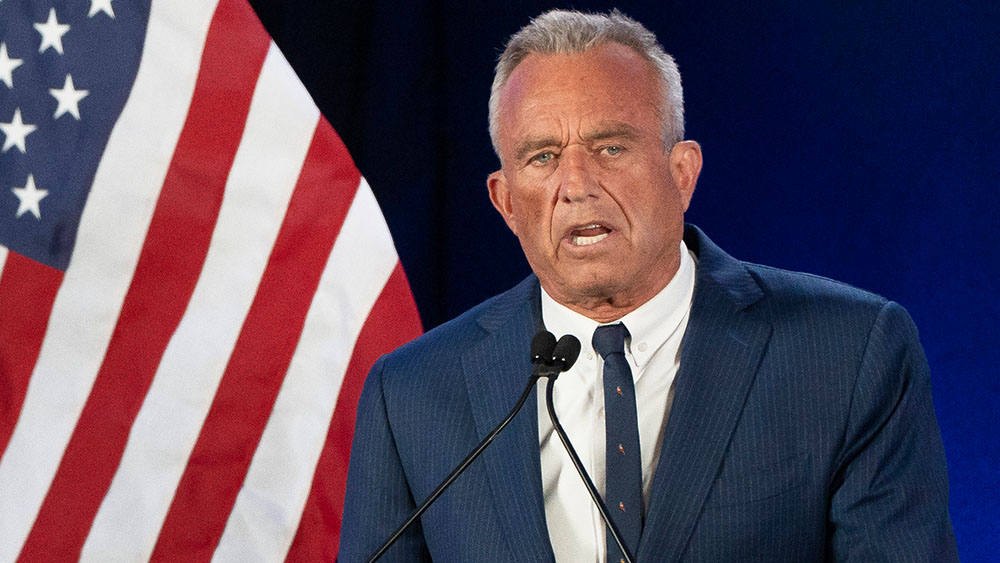Robert Jay Lifton’s “The Nazi Doctors” examines how physicians willingly participated in genocide during the Holocaust
02/18/2025 / By Arsenio Toledo

- Robert Jay Lifton’s book “The Nazi Doctors: Medical Killing and the Psychology of Genocide” explores how medical professionals became perpetrators of genocide during the Holocaust, revealing the disturbing psychological mechanisms at play.
- Lifton’s research highlights the “doubling” mechanism used by Nazi doctors, where they created a “second self” to reconcile their roles as healers with their murderous actions, allowing them to compartmentalize their morals and participate in atrocities.
- The constant exposure to death and violence at Auschwitz, along with the consumption of alcohol and narcotics, helped numb the doctors’ consciences. The selection process and camaraderie among doctors further normalized the killing process.
- Lifton details the grotesque experiments conducted by Nazi doctors, such as Josef Mengele’s, and traces the evolution of the “euthanasia” program, which expanded from targeting the disabled to all Jews, institutionalizing murder under the guise of medical treatment.
- The book explores the psychological aftermath for Nazi doctors and prisoners with medical backgrounds, emphasizing the moral ambiguity and trauma. Lifton’s work serves as a reminder of the human capacity for evil and the importance of guarding against dehumanization, advocating for the ethical integrity of the medical profession.
In a chilling examination of human psychology, Robert Jay Lifton’s groundbreaking book, “The Nazi Doctors: Medical Killing and the Psychology of Genocide,” unveils the disturbing transformation of physicians from healers to architects of genocide during the Holocaust.
This work, first published in 1986, remains a vital exploration of how ordinary individuals could be drawn into perpetrating atrocities, offering crucial lessons for understanding the ethical boundaries of medicine and the dangers of dehumanization.
Lifton’s research reveals how Nazi doctors employed a psychological mechanism called “doubling” to reconcile their roles as healers with their murderous actions. By creating a “second self,” these doctors compartmentalized their morals, allowing them to participate in genocidal acts while maintaining a sense of normalcy.
This process was facilitated by their environment at Auschwitz, where the constant exposure to death and violence numbed their consciences. Liberal consumption of alcohol and narcotics, and the camaraderie that came from regular drinking sessions with other doctors, further dulled their senses, enabling them to cope with the atrocities they committed.
Central to the doctors’ role was the selection process at Auschwitz and other death camps, where they decided which prisoners would live and who would die with a stroke of a pen or a word or two to the Nazi guards. As trains arrived, doctors stood on the ramps, assessing prisoners with a glance and deciding where they would end up. This ritual, often seen as a rite of passage, pressured newcomers to conform, normalizing the killing process. For the victims, this moment was one of utmost terror, their fates sealed by men in white coats who had become symbols of death rather than hope.
Lifton delves into the grotesque experiments conducted by Nazi doctors, most notably Josef Mengele, known as the “Angel of Death.” These experiments, driven by a mix of scientific curiosity and ideological extremism, subjected prisoners to unimaginable suffering for little conceivable medical gain. Lifton’s work underscores the ethical collapse within the medical profession, highlighting how scientific inquiry was perverted to serve genocidal goals.
The book traces the evolution of the Nazi “euthanasia” program, rooted in the ideology of “life unworthy of life.” Initially targeting the mentally ill and physically disabled, this policy expanded to include prisoners and all Jews, institutionalizing murder under the guise of medical treatment. Lifton’s interviews with survivors and perpetrators expose the deceit and complicity that characterized this program, revealing how doctors falsified and destroyed records to disguise their crimes.
Lifton also examines the harrowing experiences of prisoners with medical backgrounds forced into collusion with Nazi doctors. These individuals navigated a moral labyrinth, often resorting to subterfuge to save lives while collaborating to survive. Their accounts illustrate the moral ambiguity and psychological toll of living within a system designed for destruction.
The book concludes with the aftermath of Auschwitz, where many Nazi doctors struggled with guilt and denial. Some, like Eduard Wirths, the chief SS doctor at Auschwitz, grappled with the psychological burden, ultimately taking their own lives. Lifton’s work exposes the enduring trauma and the reluctance of many to confront their actions, highlighting the deep scars left by participation in genocide.
Lifton’s “The Nazi Doctors” serves as a poignant reminder of the human capacity for evil and the ethical stakes of medical profession. As the world reflects on the Holocaust, his work admonishes people to guard against dehumanization and uphold the sanctity of life. By understanding the mechanisms that led ordinary individuals to commit atrocities, we are better equipped to prevent such horrors from recurring, ensuring that the lessons of Auschwitz resonate through future generations.
Learn more about the horrors of the Holocaust by watching this video going in depth on Robert Jay Lifton’s “The Nazi Doctors: Medical Killing and the Psychology of Genocide.”
This video is from the BrightLearn channel on Brighteon.com.
Sources include:
Submit a correction >>
Tagged Under:
Auschwitz, bad doctors, dangerous doctors, genocide, Hidden History, Holocaust, insanity, medical extremism, medical violence, Nazi doctors, Nazi Germany, psycho, Psychology, real history, Robert Jay Lifton, unhinged
This article may contain statements that reflect the opinion of the author



















